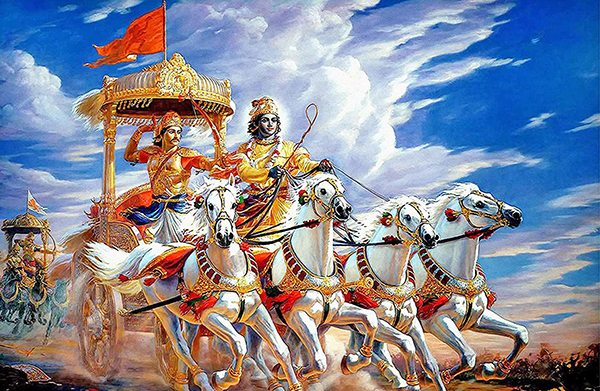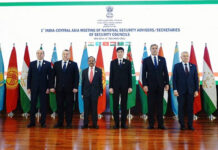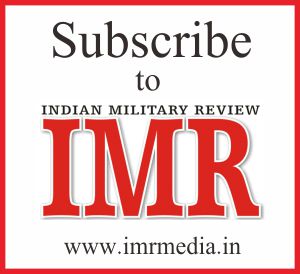Cut Submission to Alien Dominating Influence
They are slaves that aren’t proud of their heredity
Most slavery is forced; India’s mental-slavery is willfully embraced!!
Merriam-Webster defines “slavery” as submission to a dominating influence. It is a system in which principles of property-law are applied to humans, allowing individuals to own, buy and sell individuals, like property. Slaves have been used and abused throughout history. Slaves invariably are procured from foreign countries. By extension, “mental slavery” would mean mental submission to an alien dominating influence. This naturally has repercussions on a nation’s security. No people can be secure, if their minds are under foreign occupation – eroding pride in their culture, language and customs.
Indians have been victims of mental-slavery for centuries. India’s heritage of flourishing arts, sciences, trade and commerce attracted hordes of invaders over the last 900 years. Blessed with abundant resources, myriad fauna and flora, spices, a geo-strategic location commanding the warm waters of the Indian Ocean and a way-of-life of Vasudhaiva-Kutumbakam – the world is one big family, made Bharat a very attractive place on earth. Muslim invaders suffered repeated humiliating defeats, on the banks of the Indus, but India’s distorted history, written by invaders and the Congress Party, ascribed easy victories to them since the 11th Century. The failure to convert India into an Islamic State has united the entire Islamic world to this end.
The Europeans searching a sea-route to India, discovered America instead in 1492, reaching India after another 200 odd years. While the invaders failed to convert India for 800 years, they did succeed in sowing seeds of disrespect, disbelief and disregard – bordering on shame – in the Indian minds for their highly scientific, organised and cultured way of life. Thus, while India is a sovereign, democratic and secular republic, her people are deeply mired in monarchial values and a deep bias against their original heritage. These values and bias has adversely affected India’s society and security.
Foreign invaders could not have surpassed India’s rich cultural heritage with anything better. Their devious solution was to indoctrinate the natives against their beliefs and customs; questioning the scientific logic behind them. India’s Jyotish-Shashtra, based on a deep understanding of orbital periods, intensity and periodicity of radiation of the Sun, Moon and the planets and their effects on the human body, was pooh-poohed as mumbo-jumbo.To date, while the world publishes only sunrise, sunset, moonrise, moonset and tide timings, even vernacular newspapers in India publish extracts of the Panchang giving out rise and set timings of all planets, the timings of zodiacal transfers, the tithi, nakshatra, yoga, karana, ritu, ayana along with auspicious and inauspicious timings for various activities. The illiterate invader, with skills and knowledge limited to horse-riding, swordsmanship, wining, dining, plunder and rape, was flummoxed with the breakdown of a lunar day into segments more elaborate than lipid profile of blood. So, the invader started ridiculing the concept of muhurats, rahu-kaal and auspicious directions and days for travel, etc. Indian calendar follows synodic-lunar observations, ie, movement of both sun and moon vis-s-vis the earth, to determine the length of a day. Consequently, the Tithi changes at varied hours daily, unlike the date-change at midnight in other calendars. The Indian system obviates the necessity of an additional day every four years (Leap Year) to adjust the errors due to inaccurate measurements of duration of each unique day. Instead of using the advanced Indian calendar, Indians proudly use the Gregorian system of time-keeping.
Ridiculing consumption of ghee exposed the invader’s ignorance of microbiology. Vedic India knew the structure of the human body and understood fatty acids, saturated and unsaturated fats, good and bad cholesterol, blood urea and lipids. Naturally, they progressed from ill-effects of butter on human body, to ghee, with a simple step of heating butter, making it healthy for consumption. While a small amount of butter is fattening and bad for cholesterol, ghee could be consumed in copious amounts with no harmful effects. It also could be stored for long periods without refrigeration. Still, ghee is branded as bad-for-health and linked to desi-ness, a trait rendered shameful through indoctrination. Now, the firangs are surreptitiously turning to ghee while the sahibs devour butter, cheese, olive-oil and peanut butter.
Most rituals followed by desis were pronounced unscientific and witchcraft. Leaving of footwear at the entrance, washing hands before and after a meal, eating with hand, rinsing of mouth after meals, etc, were all mocked at as being savage. The invader, ignorant of ill-effects of bad-hygiene on human body, did not comprehend the might of the invisible but omnipresent germ and bacteria. Vedic sages had all this knowledge, duly chronicled in Shushruta-Samhita, Charaka-Samhita, Yoga-Sutra,etc. Sushruta-Samhita, compiled circa 800 BCE,had 186 chapters on 1,120 illnesses, 700 medicinal plants, 64 preparations from minerals and 57 preparations from animal sources. The invader, some 2000 years later, was just learning to do wuzu before namaaz. The Church forsook even this ritual of personal hygiene. Yet, both these invaders castigated the Indians for their orthodox practices. The neo-educated Indian readily adopted the modern standards of hygiene; wore shoes inside the kitchen, used hanky for nasal excreta, did not wash hands, used fork and knife to eat and was polite enough to not rinse the mouth after meals. He eschewed ghee for butter and cheese; ate refined sugar for gud/boora/khand, white bread for bran-infused rotis; chocolates for laddu and smoothies for chhaas. Never has ignorance prevailed over wisdom so blatantly as in the Indian subcontinent, through mental rewiring.
As is wont of any invader, local languages, literature and education were forcibly denounced and replaced with Arabic (Urdu) or European languages. Today, English, spoken by less than 0.02% and understood by 10.67% Indians, is not only an official language, it is the only link-language, at the expense of Hindi, spoken by 43.63% and understood by over 57.09%. Pride in regional languages, in India, surfaces only when Hindi is proposed as a pan-India official and link language – the greatest opposition coming from Tamil, spoken by 5.7% Indians. Other than Hindi, no other language is spoken by more than 8% Indians, still mental-slavery proudly accepts English over Hindi. India is the only nation in the world, which has its own languages but uses a foreign language for official and legal purposes. If English were absolutely essential for growth, nations like China, Japan, Korea, France, Germany and Italy, who eschew English with the same abhorrence Tamilians eschew Hindi, would not be leading in every technical field. Having English as an official language is a shame, India’s mentally-enslaved bourgeois is unable to shake-off. Hindi is considered an imposition on regional languages; English is not.
Mental-slavery impinges on security. Security of a nation no longer depends on military might alone; it is tightened or loosened by economic tools. USA, Russia and China exercise influence over countries through loans for development projects, infiltrating their banking systems. China’s ambitious Belt and Road Initiative, to revitalize the Silk Route, is a masterstroke of economic hegemony cloaked in global convenience. India is losing billions of dollars due to her over-reliance on foreign brands, thereby compromising her balance of trade and economic sovereignty.














[…] ALSO READ: Ignorance and Mental Slavery Impedes National Security (Part 1) […]